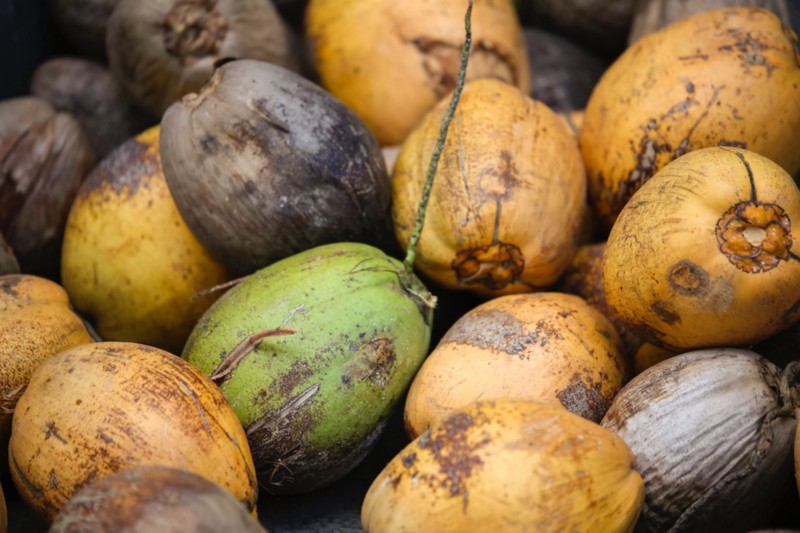
We want to share the knowledge of our inspiring Spoon Squad far and wide. Today’s guest post comes from Registered Dietitian, Serena Hunt.
Doesn’t it feel like no matter how hard you try to be healthy, you’ll never have the right information to make the best choices? I mean, wasn’t it just seconds ago that people were taking spoonfuls of coconut oil as a supplement? And now it’s bad for us? What is happening?!
The recent statement from the American Heart Association isn’t based on any new, earth-shattering studies about the health effects of coconut oil. Instead, it simply reiterated what we all already know: coconut oil is very high in saturated fat, including medium chain fatty acids.
Wait. Before you die of confusion. I’m going to explain. Give me a second.
Saturated fat is not necessarily the healthiest fat source you can consume. It isn’t bad for you, but it’s not straight-up great for you, the way omega-3 fatty acids or monounsaturated fats (i.e. the ones found in olive oil) are.
However, saturated fat is very stable: when exposed to heat it doesn’t change on a molecular level. Basically, you can heat up coconut oil (or any saturated fat) and know that the heating process won’t change the oil. This is a great thing. Meanwhile, unstable, polyunsaturated fats such as corn, soybean, or vegetable oil actually become harmful when exposed to heat.
Sure, coconut oil is high in saturated fat. And saturated fat has been associated with increased LDL cholesterol. Doctors will tell you that LDL (low-density lipoprotein) cholesterol is a “Loser” and promotes heart disease, while HDL (high-density lipoprotein) is a “Hero” and prevents heart disease. Your next question: is high LDL actually a contributor to heart disease? Let me make this clear: no.
LDL is not the problem. Oxidized LDL is. Consuming rancid (oils and fats become rancid when damaged by oxygen. Their natural structure changes, altering the taste, odor, and producing harmful byproducts) polyunsaturated fatty acids from vegetable, corn or soybean oil, or from trans-fats such as hydrogenated oils, oxidizes LDL particles and increase your heart disease risk. When you eat a diet low in pro-inflammatory oils and low in sugar, your LDL are large, fluffy particles, which don’t contribute to heart disease. Only when we eat a diet high in bad oils and sugar do LDL oxidize into small, insidious particles, which clog arteries and contribute to heart disease.
The takeaway is that coconut oil is a healthy choice for cooking. It’s stable and will not contribute to oxidation or inflammation in the body. But it doesn’t make sense to take tablespoons of coconut oil as a supplement, and coconut oil shouldn’t be the base of a salad dressing that could be made with olive oil.
So no, coconut oil isn’t bad for us. But, as with everything, moderation is key. It’s best not to eat coconut oil by the spoonful, but using coconut oil to cook your veggies isn’t going to contribute to heart disease.
